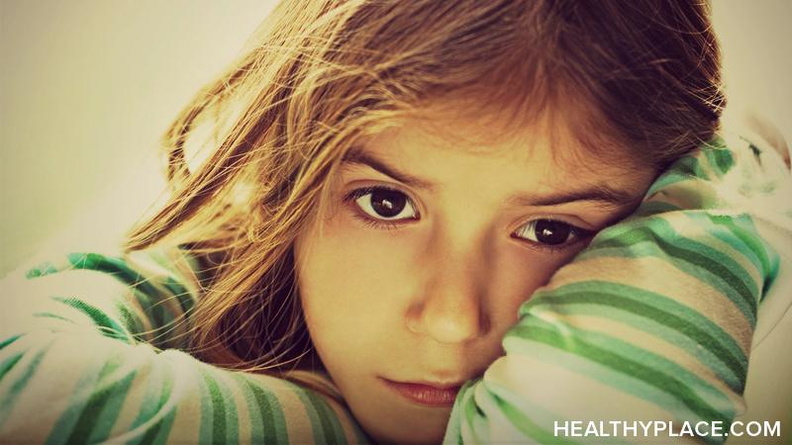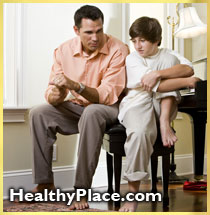How to Discuss War and Terrorism With Your Children

Suggestions for parents on how to explain war and terrorism to your children.
20 Tips for Parents
Once again, parents and teachers are faced with the challenge of explaining war and terrorism to their children. Although these are understandably difficult conversations, they are also extremely important. While there's no "right" or "wrong" way to have such discussions, there are some general concepts and suggestions that may be helpful. These include:
- Create an open and supportive environment where children know they can ask questions. At the same time, it's best not to force children to talk about things until they're ready.
- Give children honest answers and information. Children will usually know, or eventually find out, if you're "making things up". It may affect their ability to trust you or your reassurances in the future.
- Use words and concepts children can understand. Gear your explanations to the child's age, language and developmental level.
- Be prepared to repeat information and explanations several times. Some information may be hard to accept or understand. Asking the same question over and over may also be a way for a child to ask for reassurance.
- Acknowledge and validate the child's thoughts, feelings and reactions. Let them know that you think their questions and concerns are important and appropriate.
- Be reassuring, but don't make unrealistic promises. It's fine to let children know that they are safe in their house or in their school. But you can't promise children that no more planes will crash or that no one else will get hurt.
- Remember that children tend to personalize situations. For example, they may worry about friends or relatives who live in a city or state directly or indirectly associated with any of the recent terrorist incidents.
- Help children find ways to express themselves. Some children may not want to talk about their thoughts, feelings or fears. They may be more conformable drawing pictures, playing with toys, or writing stories or poems.
- Avoid stereotyping groups of people by country or religion. Use the opportunity to explain prejudice and discrimination and to teach tolerance.
- Children learn from watching their parents and teachers. Children will be very interested in how you respond to events in the world. They will also notice changes in your routines such as reducing business travel or modifying vacation plans, and they will learn from listening to your conversations with other adults.
- Let children know how you're feeling. It's OK for children to know if you are anxious, confused, upset or preoccupied by local or international events. Children will usually pick it up anyway, and if they don't know the cause, they may think it's their fault. They may worry that they've done something wrong.
- Don't let children watch lots of TV with violent or upsetting images. The repetition of frightening scenes of planes crashing or buildings falling down can be very disturbing to young children. Ask local TV stations and newspapers to limit the repetition of particularly frightening or traumatic scenes. Many media outlets have been receptive to such overtures.
- Help children establish a predictable routine and schedule. Children are reassured by structure and familiarity. School, sports, birthdays, holidays and group activities all take on added importance.
- Don't confront your child's defenses. If a child is reassured that things are happening "very far away" it's probably best not to argue or disagree. The child may be telling you that this is how they need to think about things right now in order to feel safe.
- Coordinate information between home and school. Parents should know about activities their child's school has planned. Teachers should know about discussions which take place at home, and about any particular fears, concerns or questions a child may have mentioned.
- Children who have experienced trauma or losses in the past are particularly vulnerable to prolonged or intense reactions to the recent tragedies. These children may need extra support and attention.
- Monitor for physical symptoms including headaches and stomachaches. Many children express anxiety through physical aches and pains. An increase in such symptoms without apparent medical cause may be a sign that a child is feeling anxious or overwhelmed.
- Children who are preoccupied with questions about war, fighting or terrorism should be evaluated by a trained and qualified mental health professional. Other signs that a child may need additional help include ongoing trouble sleeping, intrusive thoughts, images, or worries, or recurring fears about death, leaving their parents or going to school. Ask your child's pediatrician, family practitioner or school counselor to help arrange an appropriate referral.
 Help children reach out and communicate with others. Some children may want to write to the President or to a State or local official. Other children may want to write a letter to the local newspaper. Still others may want to send thoughts to soldiers or to families who lost relatives in the recent tragedies.
Help children reach out and communicate with others. Some children may want to write to the President or to a State or local official. Other children may want to write a letter to the local newspaper. Still others may want to send thoughts to soldiers or to families who lost relatives in the recent tragedies.- Let children be children. Although many parents and teachers follow the news and the daily events with close scrutiny, many children just want to be children. They may not want to think about what's happening halfway around the world. They'd rather play ball, climb trees or go sledding.
Recent events are not easy for anyone to comprehend or accept. Understandably, many young children feel confused, upset and anxious. As parents, teachers and caring adults, we can best help by listening and responding in an honest, consistent and supportive manner.
Fortunately, most children, even those exposed to trauma, are quite resilient. Like most adults, they will get through this difficult time and go on with their lives. However, by creating an open environment where they feel free to ask questions, we can help them cope and reduce the risk of lasting emotional difficulties.
David Fassler, M.D. is a child and adolescent psychiatrist practicing in Burlington, Vermont. He is also a Clinical Associate Professor in the Department of Psychiatry at the University of Vermont. Dr. Fassler chairs the Council on Children, Adolescents and their Families of the American Psychiatric Association. He is also a member of the Work Group on Consumer Issues of the American Academy of Child and Adolescent Psychiatry.
next: How to Help Your Anxious Child
~ anxiety-panic library articles
~ all anxiety disorders articles
APA Reference
Staff, H.
(2007, February 19). How to Discuss War and Terrorism With Your Children, HealthyPlace. Retrieved
on 2026, January 14 from https://www.healthyplace.com/anxiety-panic/articles/how-to-discuss-war-and-terrorism-with-your-children


